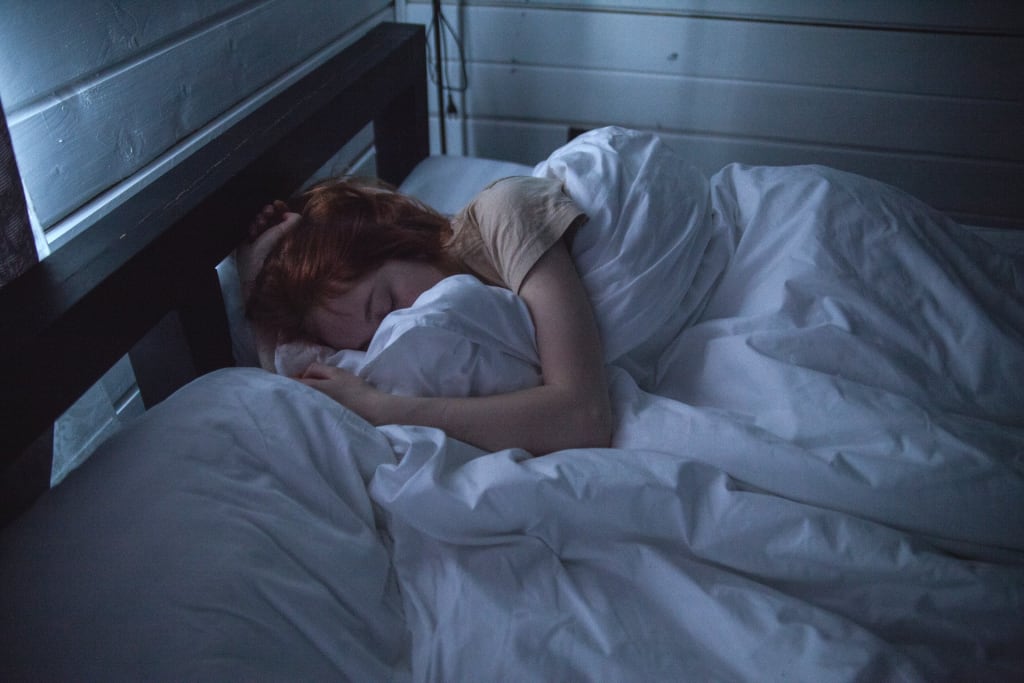Three Conditions That Might Be Disrupting Your Beauty Sleep
Here are just a few concerns that can disrupt your beauty sleep—and can cause even more serious physical problems.

According to the US Centers for Disease Control and Prevention, adults need seven or more hours of sleep per night to promote overall health and wellbeing. But data shows that one in three adults do not get enough sleep on a regular basis. Sleep deprivation can lead to a number of issues, such as poor concentration, memory problems, obesity, depression, an increased risk of car accidents, and even heart attacks or strokes. Subsequently, it’s essential to find out the source of your sleep disruption in order to make lifestyle changes and seek medical treatment, if needed.
Certainly, excessive stress or over-consumption of caffeine can play a part in our inability to get a good night’s rest. But if you consistently experience exhaustion with no obvious cause, it’s also possible that an underlying health condition could be to blame.
Sleep Apnea
The National Sleep Foundation estimates that more than 18 million Americans have sleep apnea. The condition is typically characterized by chronic snoring, as well as breathing patterns that repeatedly stop and start throughout the night. In many cases, a person may not even know he or she has sleep apnea unless a partner or family member points out the symptoms. Daytime drowsiness, irritability, sexual dysfunction, and concentration issues can indicate the presence of sleep apnea, as well.
People who suffer from sleep apnea may also have difficulty staying asleep, thanks to the disruptions in their breathing patterns. But even more serious than missing out on a full night’s sleep are the long-term health effects of untreated sleep apnea. These complications can include an increased risk of high blood pressure, heart problems, type 2 diabetes, liver issues, and more. Of course, the most obvious symptoms of sleep apnea can also cause tension in personal relationships, as well. For these reasons, it’s essential for anyone who suspects he or she might have sleep apnea to consult with a doctor, undergo a sleep study, and receive a definitive diagnosis. Sleep disorder treatment for this condition may involve weight loss, the use of a CPAP machine, and other adjustments.
TMJ Disorders
Temporomandibular joint and muscle disorders, also known as TMJ or TMD, are conditions that primarily impact the jaw joint and the muscles that assist in jaw movement. Approximately five to 12 percent of the population might experience these conditions. Facial pain, jaw stiffness, locking or movement limitation, clicking or popping, or a change in bite alignment may signal the presence of one of these disorders. Interestingly, there is no recognized standard for these disorders; they are instead diagnosed by health care providers who evaluate the symptoms experienced, as well as physical examinations of the areas affected.
TMJ disorders can certainly impact your ability to eat and talk normally, but they can also affect the way you sleep. Teeth grinding, also known as bruxism, can exacerbate TMJ disorders and make it difficult for you to get a full night’s worth of rest. Experts believe that if you gnash or grind your teeth while you sleep, it’s nearly impossible for your body to enter the deepest and most restful phase of sleep (also known as Delta Phase). Whether due to anxiety or dental abnormalities, clenching your teeth during the night can lead to both excessive tiredness and jaw pain or other TMJ symptoms. In order to protect your teeth, sleep soundly, and find relief for your jaw issues, you should talk to your family dentist about potential treatment options, such as wearing a mouth guard or reconstructive surgery.
Insomnia
Anywhere from 50 to 70 million Americans have a sleep disorder, with insomnia being the most common. That means that millions of Americans struggle to fall or stay asleep on a nightly basis. But for most, counting sheep or drinking warm milk won’t do the trick. In addition to having issues drifting off to dreamland, people who have insomnia tend to wake up frequently throughout the night, or wake up too early in the morning and are unable to get back to sleep.
Those with insomnia may also feel constantly exhausted, irritable, depressed, or anxious. Concentration difficulties and increased errors are also common. In the long term, low job or school performance, increased accident risk, and a greater chance of heart disease or high blood pressure can be caused by untreated insomnia. What’s more? One study found that insomnia costs an estimated $63 billion in lost work performance on every year. Often, excessive stress or an unnatural work or travel schedule can cause insomnia, but medications and mental health issues may also play a part. Sleep studies and physical examinations are usually required to diagnose insomnia, while treatment may involve cognitive behavioral therapy, prescription medications, and lifestyle changes.
A poor night’s sleep doesn’t mean that you have a significant health problem. But if you feel it’s rare that you ever awake feeling rested and any of these symptoms sound familiar, you’ll want to contact your medical provider to receive a diagnosis and pursue treatment.





Comments
There are no comments for this story
Be the first to respond and start the conversation.